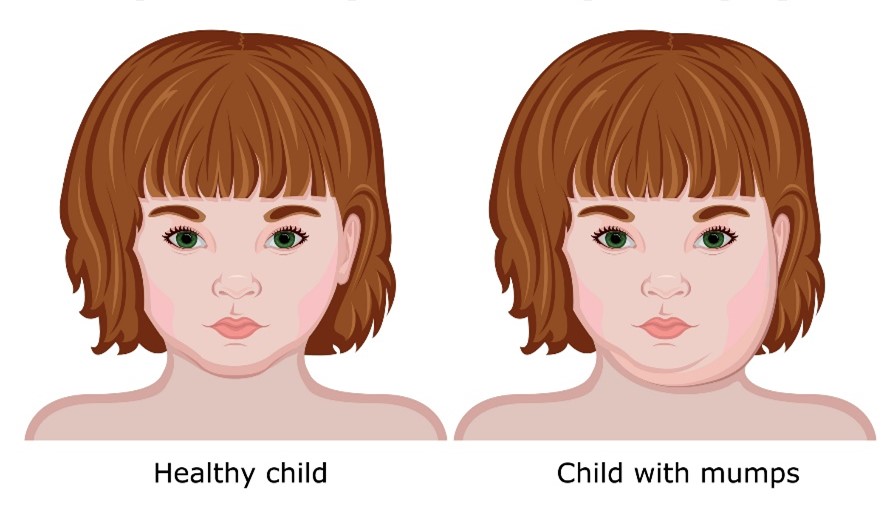Mumps (parotis epidemica)
Mumps - Infection Prevention
-Automatic translation
Mumps is a viral illness spread through droplets from sneezing or coughing and contact with contaminated surfaces. The infected person is typically contagious for two days before symptoms start and five days after the appearance of salivary gland inflammation. Some people are infectious for longer. Mumps can lead to severe complications, particularly in adolescents and adults.
Key symptoms of mumps
Initial symptoms resemble a common cold or flu, including fever, muscle aches, loss of appetite, weakness, fatigue, and headache.
Within a few days, swelling and inflammation develop in one or both salivary glands near the ears (cheeks) or under the jaws, often extending to the throat.


It's worth noting that general cold or flu symptoms may then indicate mumps illness, especially if cases are known in the local area.
The time between infection and onset of symptoms is usually around three weeks.
To prevent spread (transmission): Individuals diagnosed with mumps should isolate themselves at home, away from work and school, and limit contact with others for at least five days after the onset of gland inflammation, preferably in a separate room if others in the household are susceptible (unvaccinated or never had mumps). If the illness lasts more than five days, continue to limit contact with others and avoid social events until recovery is well advanced (no fever, mild/no symptoms). Caregivers should wear protective masks and gloves when in close contact (<1 meter) with the infected person and practice regular handwashing. The infected person should also then wear a protective mask. Routine cleaning of surfaces with soap and water or disinfectants is recommended.
If mumps are present in a specific setting like a school or workplace: Everyone and their household members should check their vaccination status and monitor for symptoms.
Those potentially exposed to the virus (been near an infected person) should stay home for three weeks (and work remotely if possible), avoiding gatherings and crowded places.
If you experience symptoms of mumps, it's crucial to: Stay home, work remotely if possible, adhere to infection prevention measures, and avoid attending school or public events. Wear a mask if you need to go out among others, regardless of vaccination status.
See additional details about mumps and vaccination to prevent mumps.

Service provider
Directorate of Health